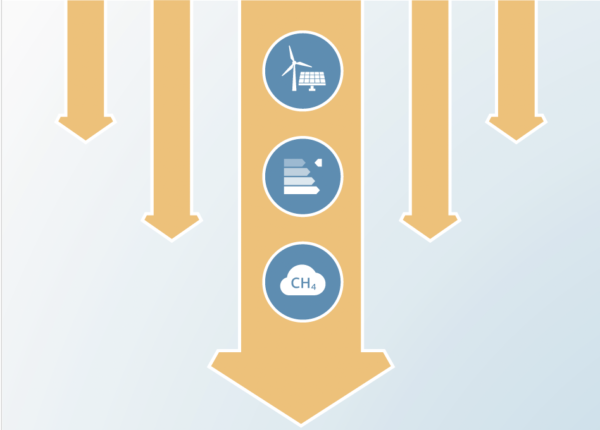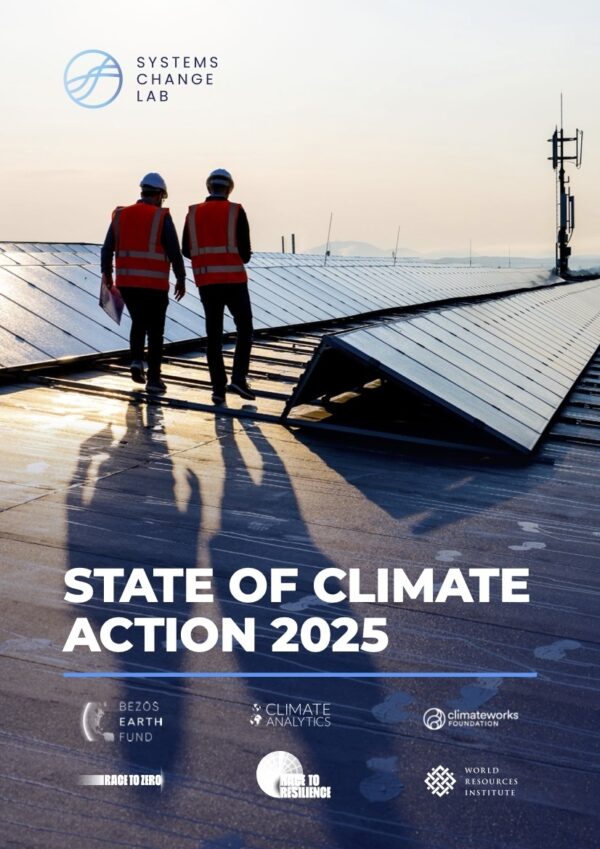Coal phase-out and energy transition pathways for Asia and the Pacific
Authors
Ursula Fuentes, Anna Chapman, Gaurav Ganti, Fahad Saeed, Jessie Ruth Schleypen, Bill Hare
Review: Matt Gidden, Deborah Ramalope
Share

This report, prepared by Climate Analytics for the UN Economic and Social Commission for Asia and the Pacific, provide insights into how the Asia and the Pacific region can transition away from coal to a renewable based efficient energy system compatible with the Paris Agreement and Sustainable Development Goals.
The Asia-Pacific region, more than any other global region, is highly reliant on fossil fuels. How it transitions away from fossil fuels will be a pivotal issue for Asia-Pacific and the world in the coming years, in light of the current and future climate impacts and the sustainable development benefits possible through an energy transition.
How can the region can transition away from coal to a renewable based efficient energy system compatible with the Paris Agreement and Sustainable Development Goals? What is the current situation, what drives coal expansion in the region, what are the options for a clean energy transition and benefits that would stem from it?
Key findings
Coal generation is still expanding in the Asia-Pacific against trends elsewhere in the world
- A total of 27 countries in the Asia-Pacific account for about 76% of current global coal generation capacity.
- The region accounts for almost the entire (94%) global pipeline of new coal plants.
- Even without building new plants, emissions from coal fired power generation in the Asia-Pacific would continue at a very high level until after 2040 and would only be phased out by around 2060.
- To be in line with the Paris Agreement, coal fired power generation must peak in 2020 globally, then decrease rapidly to 80% below 2010 levels by 2030, and be phased out by 2040.
- Non-OECD Asia needs to reduce coal generation by 63% below 2010 levels by 2030 and phase out by 2037, completing a global coal phase-out before 2040.
- Non-OECD Asia faces the most challenging gap between potential generation from coal and Paris Agreement benchmarks, with generation from currently operating coal fired power generation already largely exceeding the Paris Agreement benchmarks.
Political economy drives the support for coal and expansion of coal-fired power generation in the region
- Key factors include high demand growth in South and Southeast Asia, the presence of a large share (more than 60%) of global coal reserves in the region, and a high dependency on income from coal exports in some of the countries in the region whose governments support coal mining and coal fired power generation, including through subsidies and public finance.
- Support for coal in the region is driven by the geopolitical influence of four countries that have historically relied on coal and are large coal importers: China, Japan, the Republic of Korea, and India.
- Governments, government-owned financial institutions or government-owned utilities in these four countries are strongly supporting coal expansion in the region.
- The main recipients of this support are countries in South and Southeast Asia: Bangladesh, Indonesia, Pakistan, and Viet Nam.
It is feasible to achieve a Paris Agreement-compatible 50-85% share of renewable energy by 2030 in South and Southeast Asia by 2030, and 100% renewable electricity generation by 2050.
- Utilisation of solar and wind could satisfy the needs of almost all South and Southeast Asian countries many times over.
Renewable energy provides a large range of benefits for sustainable development
- It can be deployed rapidly, and in areas that are not connected to the grid, important for a region where not all of the population has access to electricity.
- Installation of renewable energy can replace fossil imports creating security and also avoid the price fluctuations of fossil fuel imports.
- It provides employment opportunities, and employment is crucial for post-COVID-19 recovery.
- Phasing out coal reduces air, water and soil pollution, as well as negative impacts on water quality and water scarcity.
- It is crucial for the region to contribute to achieving the Paris Agreement temperature limit.
Policy recommendations
- National governments: Adopt best practice policies – phase out fossil fuel subsidies, carbon pricing, renewable energy support, encourage and push shift in investment through green recovery
- National governments: Move to transformational policies, targets, long-term planning – ratcheting up NDC targets and adopt Long-Term Strategies in line with the Paris Agreement
- Clear pathways to enable anticipation of change and avoid more stranded assets – moratorium for new coal, targets and phase-out plans for coal before 2040
- Financial support and capacity building need to be informed by Paris Agreement benchmarks to shift investments at scale in the near term.
- Regional and international cooperation: Alignment with Paris Agreement goals, engaging stakeholders, private sector and civil society
- Trans-boundary grid transmission and integration
- Financial institutions: Cooperation on sustainable Finance, clear policies and transparency
- Private sector engagement











